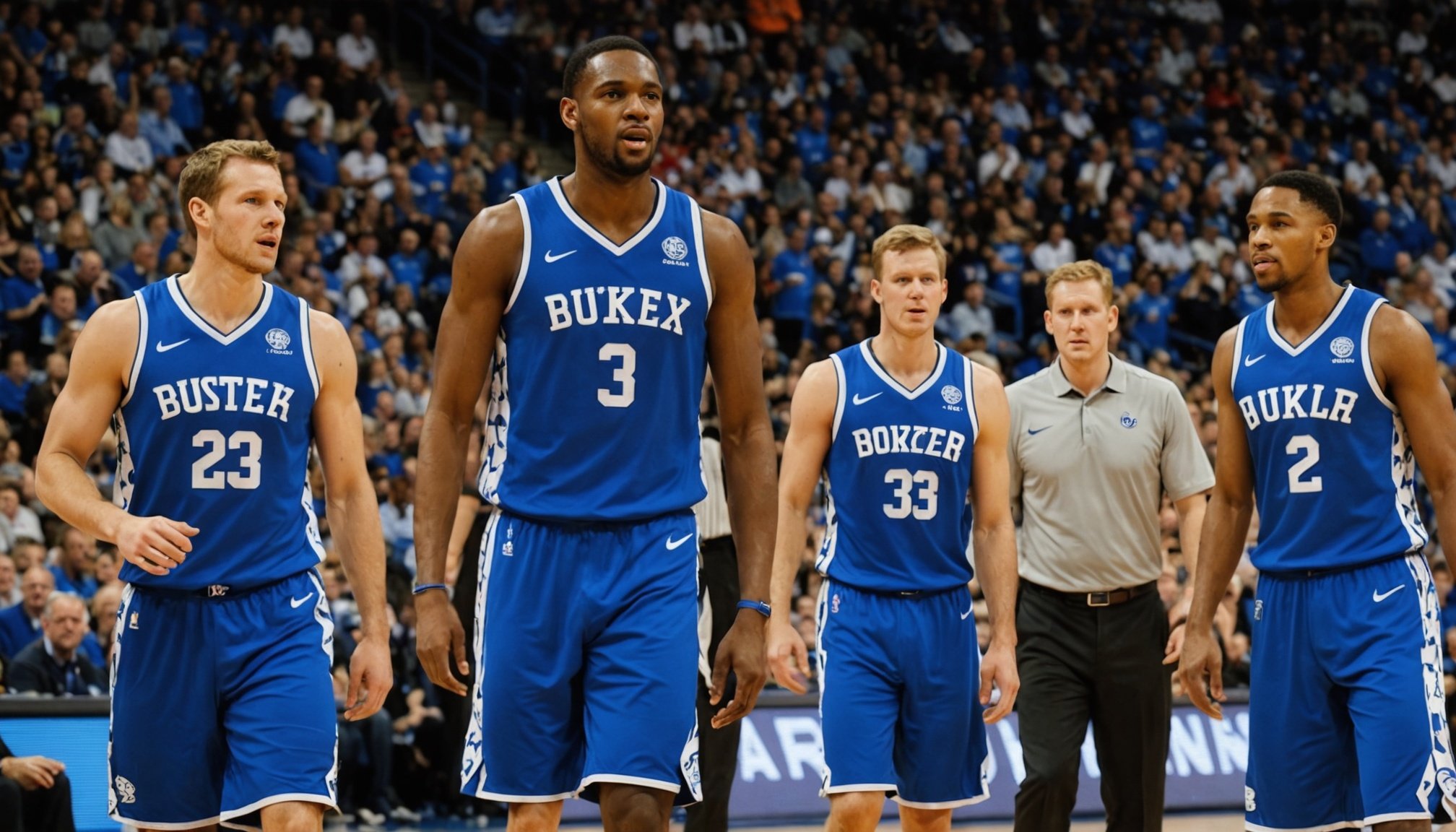Addressing the Roadblocks: Current State of UK Basketball
The UK basketball challenges primarily stem from systemic issues that restrict success on the international stage. A key barrier is the limited depth in the talent pipeline. Young athletes often lack access to consistent, high-level competition domestically, which hinders skill development and readiness for global contests. This shortage narrows the pool of players who can compete internationally with confidence and resilience.
Infrastructure constraints also significantly impact growth. Many facilities are underfunded and unable to provide the necessary environments for elite training. This situation affects not only player development but also coaching quality and injury prevention—factors vital to sustaining competitive performance.
Also read : Exploring the evolution of uk basketball infrastructure for enhanced growth support
Additionally, funding limitations throttle ambitions for growth. The sport struggles to secure sufficient investment to expand grassroots programs or enhance professional leagues. Without adequate financial support, initiatives to improve domestic competition and international representation stall.
Overcoming these barriers requires strategic investments targeting talent cultivation and infrastructure improvement. Boosting competitive opportunities domestically can better prepare players for the demands of the international stage and foster a stronger basketball culture throughout the UK.
In parallel : Exploring the rising popularity of basketball in the uk: what draws the crowd?
Laying the Foundation: Structural and Infrastructure Upgrades
Building a robust base for basketball’s growth
Modern basketball infrastructure is crucial for nurturing talent and elevating the sport’s profile in the UK. Investing in state-of-the-art training facilities and elite academies supports both player development and competitive excellence. Without these upgrades, athletes may lack the resources to reach their full potential, limiting the growth of basketball nationally.
Government support plays an essential role in financing facility improvements. Models include public-private partnerships and targeted sports investment funds, providing resources that help rebuild or enhance courts, gyms, and training centers. This collaborative funding approach ensures longevity and access for all levels.
Creating sustainable basketball infrastructure means designing facilities that accommodate community use, professional training, and diverse events. This multipurpose approach maximizes utility and encourages broader participation. A sound foundational strategy empowers future generations, ensuring basketball can thrive steadily and inclusively across the UK.
Coaching Evolution: Adopting Global Best Practices
Advancing UK basketball through innovation and learning
UK basketball coaching is rapidly transforming by embracing international best practices that elevate player development and competitive success. Leading basketball nations employ sophisticated coaching strategies, emphasizing tailored skill development, psychological conditioning, and tactical flexibility. UK basketball coaching increasingly mirrors these methodologies to bridge performance gaps at all levels.
Professional development is critical for UK coaches to stay current. Continuous education, international workshops, and exchange programs allow coaches to imbibe cutting-edge techniques directly from global experts. Data-driven approaches, such as performance analytics and biomechanical assessments, are now integral to training regimens. These innovations help identify player strengths and weaknesses more precisely, enabling personalized coaching strategies.
Implementing these global coaching strategies within the UK context requires adaptability. Coaches balance international methods with local player profiles and resource availability, ensuring relevance and effectiveness. This evolution fosters a more competitive environment and accelerates talent nurturing, ultimately strengthening UK basketball on the world stage.
Cultivating Talent: Grassroots to Elite Pathways
Building a strong foundation in youth basketball UK begins with expanding grassroots participation and enhancing school programmes. These initiatives are crucial for identifying and nurturing young talent early. By exposing children to structured training, coaching, and competition, grassroots systems cultivate essential skills and passion for the game.
A well-defined talent development structure ensures promising players can progress through clear stages. From local clubs to regional centres, players follow elite player pathways designed to refine their abilities systematically. These pathways provide access to advanced coaching, sports science support, and competitive opportunities. With this approach, talent is not only discovered but also carefully developed.
Collaboration between UK basketball bodies and international academies or leagues further enriches player experiences. Access to diverse training methods and high-level competition helps young athletes adapt to global standards. This network enhances the elite player pathways by creating opportunities for international exposure and benchmarking.
In sum, the success of youth basketball UK relies on a cohesive talent development system—from grassroots to elite—that supports continuous growth and offers clear progression opportunities. This framework is essential for producing players who can compete at the highest levels domestically and abroad.
Building a Winning Culture: Fostering Team Identity and Competitiveness
Creating a strong team culture begins with instilling a consistent ethos that unites every player around shared goals. This foundation helps develop a competitive mindset essential for thriving in high-pressure situations. Emphasizing a UK basketball identity encourages pride and belonging, motivating athletes to represent their nation with determination.
Leadership plays a crucial role in this process. Effective leaders not only guide strategy but also foster team cohesion by promoting trust and open communication. This synergy enhances collaboration on and off the court, making the team resilient during intense competition.
Preparation for international play demands the cultivation of mental toughness alongside physical skill. The team’s culture must reinforce adaptability and confidence, enabling players to perform at their best against elite opponents. A well-established UK basketball identity offers a clear standard for commitment, ensuring everyone shares the same vision.
By focusing on these elements, the squad builds a winning culture that goes beyond tactics. This environment nurtures players’ potential and drives collective success, which is vital for contending in the challenging landscape of international basketball.
Learning from the Best: Case Studies and Global Inspirations
Small text: Insights from international success stories shape the future of basketball development.
Examining international success stories offers valuable guidance for basketball development. Spain’s basketball ascendancy highlights how a cohesive national system, emphasizing skill development and tactical intelligence, can elevate a country’s competitive standing. Their use of grassroots programs linked to professional clubs provides a blueprint for the UK to enhance talent pathways.
Australia’s Centre of Excellence model demonstrates the effectiveness of centralized training hubs. This approach consolidates resources and expert coaching, enabling athletes to refine their abilities while benefiting from sports science and performance analysis. Adopting similar global strategies could significantly improve player readiness and international competitiveness in emerging basketball nations.
African basketball development programs illustrate how targeted investment and community engagement drive growth. These initiatives focus heavily on youth participation, coaching education, and infrastructure development, showcasing a scalable model that combines local passion with international support.
Collectively, these basketball case studies reveal that success hinges on structured development, resource allocation, and cultural alignment. For the UK, learning from these global inspirations can translate into tailored strategies that better nurture homegrown talent and promote sustainable basketball excellence.
Roadmap for Glory: Strategic Actionable Recommendations
Building a foundation for UK basketball’s rise
To elevate UK basketball strategy, policymakers must prioritize actionable roadmap elements that drive swift progress alongside sustainable growth. Immediate impact hinges on clear governance improvements, such as establishing a centralized body overseeing talent development and resource allocation. Leadership initiatives should focus on enhancing coaching quality and expanding grassroots programs to widen the player base.
Long-term targets should include forging international partnerships to position UK basketball on the global stage. Collaborations with established basketball federations can unlock coaching expertise, joint training camps, and exposure to higher competition levels—all critical for enhancing international recognition. Simultaneously, investment in sports science and analytics will help refine performance strategically.
Measures of success must encompass both quantitative and qualitative metrics: increased tournament qualifications, rising player exports to overseas leagues, and improved domestic league competitiveness. Sustainability planning involves securing diversified funding sources, including private sponsorships and government grants, to ensure financial stability. By integrating these elements into an actionable roadmap, UK basketball can transition from promising potential to consistent international contender status.



